Three policemen killed, three security personnel injured after gunfight in J-K’s Kathua

Two militants are also believed to be killed in the operation, as around four more militants are suspected to be active at the encounter site, said official sources
Abortion opponents laud bill that would clamp down on pill providers and out-of-state abortions
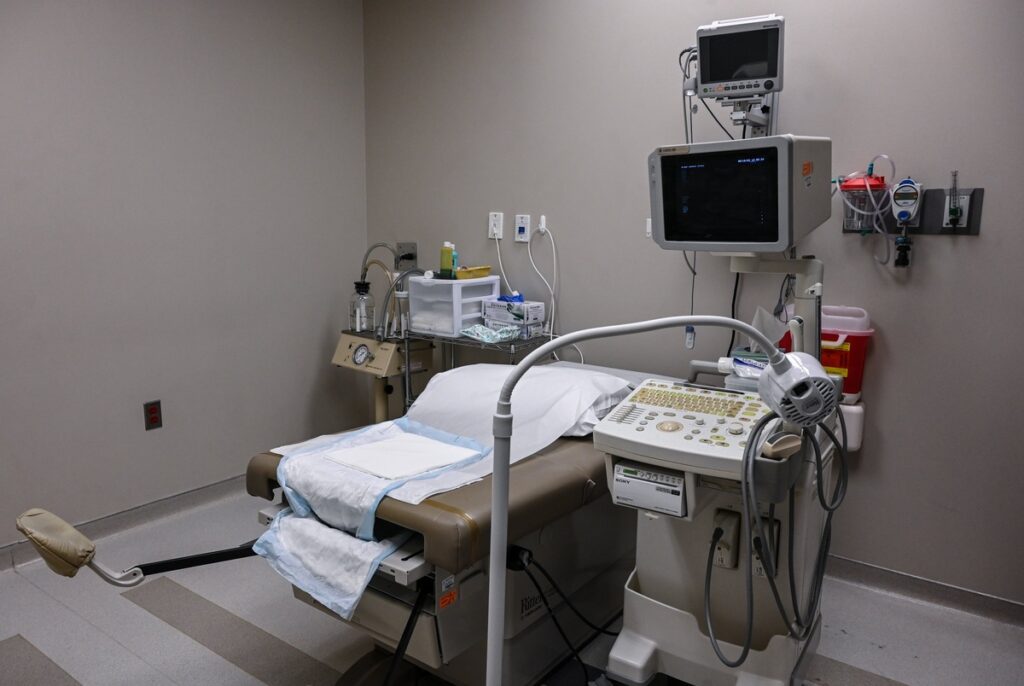
Some health care providers in support of Senate Bill 2880 said people who are mailed abortion pills aren’t given instructions and do not receive follow-up care.
Feds lost track of tens of thousands of unaccompanied alien children after release: DHS OIG report
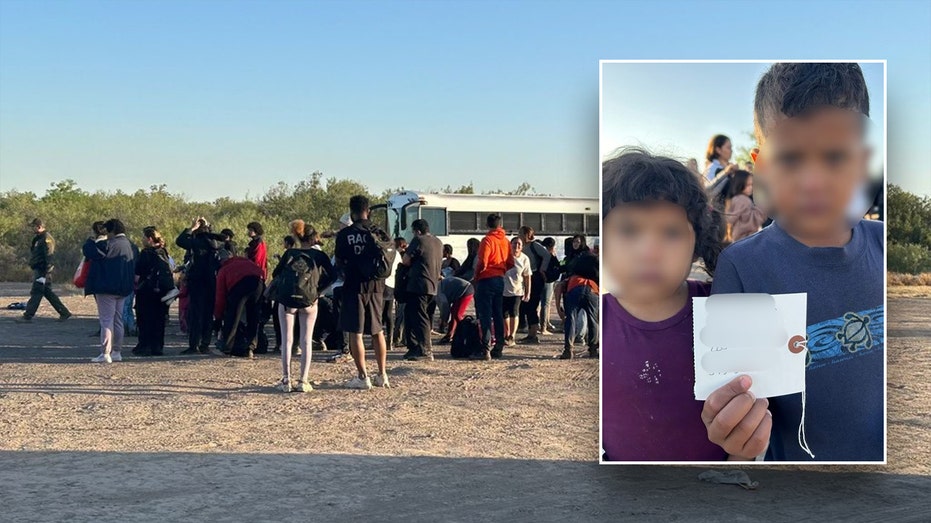
In a new report, the Department of Homeland Security (DHS) inspector general found that U.S. Immigration and Customs Enforcement (ICE) is unable to effectively monitor the location and status of each unaccompanied alien child (UAC) who comes into the U.S. illegally and is released from custody. Inspector General Joseph V. Cuffari said in the report that between fiscal years 2019 and 2023, ICE transferred over 448,000 UACs into the custody of the U.S. Department of Health and Human Services. From there, most of the UACs were released to sponsors. But over 31,000 of those 448,000 children were released to addresses that were left blank, had missing apartment numbers or were undeliverable. The IG also noted that ICE did not always know the location of UACs who fled while in HHS custody. CHICAGO MAYOR FIRES BACK AT BORDER CZAR’S ‘REPREHENSIBLE’ THREATS TO PROSECUTE HIM OVER ICE RAIDS Cuffari said an investigation into the matter found ICE did not issue notices to appear (NTA) to all UACs, which would have generated assignment of immigration court dates by the Department of Justice (DOJ), and as of January this year, it had not served NTAs on over 233,000 unaccompanied children. Of the UACs who were served NTAs before October 2024, over 43,000 failed to appear for their scheduled court dates. The report also found that ICE was not always notified about the safety or status of the children unless it received a tip. However, those issues, the IG said, happened because ICE was not always notified about the locations of sponsors by other federal agencies. FED AGENCIES RELEASED NONCITIZENS WITHOUT ID INTO US, ALLOWED THEM TO BOARD DOMESTIC FLIGHTS: DHS OIG REPORT Cuffari acknowledged staffing to be able to monitor each UAC was limited, and without that ability, there was no assurance the children were safe from trafficking, exploitation, forced labor or criminal activity. ‘POLITICAL STUNT’: CRITICS DISMISS HARRIS’ EXPECTED ARIZONA BORDER VISIT AS IMMIGRATION REMAINS TOP ISSUE Rep. Tony Gonzales, R-Tex., brought up the crisis involving unaccompanied alien minors during a House Homeland Security Committee Subcommittee on Border Security and Enforcement hearing on March 25. He was told that during the Biden administration, HHS lost track of many of the minors and that some were subjected to trafficking, child labor and other things. “The Biden administration’s total failure at the border had disastrous consequences, and it’s shameful that even innocent, unaccompanied children were caught in the crosshairs,” Gonzales told FOX News. “The fact that we can’t locate tens of thousands of these minors in the U.S. is completely unacceptable, as it’s likely that many of these children have ended up in dangerous situations. Not having answers is unacceptable, and it’s past time to put our heads together to fix this problem for good.”
Barcelona beat Osasuna to move three points clear in LaLiga

The LaLiga leaders move three points clear at the top of the table after sweeping to a 3-0 win against Osasuna. Barcelona eased to a 3-0 home win against Osasuna to move three points clear of defending champions Real Madrid in LaLiga. Despite resting key forwards Robert Lewandowski and Raphinha, the Catalan club raced into a two-goal lead through a Ferran Torres tap-in and a Dani Olmo penalty – after a retake. Second-half substitute Lewandowski headed home the third in the 77th minute to wrap up a sixth-straight win for Barca. In truth, it could and should have been a lot more for the home side, whose unbeaten run in all competitions has extended to 19 games. “Every match is a final from now on and today wasn’t different. We solved it quickly and soundly and that’s the important thing. Three points and move on,” first-goal scorer Torres told reporters. Ferran Torres of Barcelona scores his team’s first goal [Clive Brunskill/Getty Images] Torres opened the scoring for the home side in the 11th minute with a first-time finish from inside the six-yard box as he met with Alejandro Balde’s cross in a terrific team goal. Advertisement Olmo extended the lead 10 minutes later from the penalty spot after he was fouled while attempting to round the Osasuna keeper. It took two efforts to find the goal for Olmo, whose first kick was saved but had to be retaken after an Osasuna player was found to have encroached in the area. Barcelona boss the stats against Osasuna Osasuna failed to register an effort on goal in the first period while conceding 78 percent of the possession at the same time. Lewandowski’s close-range header wrapped up the win as the Polish striker netted his 23rd goal of the season only seven minutes after coming on. Barcelona’s Robert Lewandowski scores their third goal [Albert Gea/Reuters] Undefeated since late December, Barca are the only team in Europe’s top-five league who have yet to lose in 2025. They have 63 points from 28 games with champions Real Madrid in second with 60 and Atletico third with 56. Osasuna are 14th in the standings. In a match originally postponed on March 8 due to the death of the Catalan club’s doctor Carles Minarro Garcia, Barca manager Hansi Flick fielded a much-changed team due to absences caused by injuries and fitness of players returning from international duty. The win will also come as a relief to Flick, who, along with the club, wanted the match rearranged for a later date given many of his team had only just returned from their exploits with their countries. The fixture also marks the start of a 20-day run in which Barca play seven matches across LaLiga, the Copa del Rey and the Champions League. +3 – Only three teams in the 21st century have claimed @LaLiga Champions with a +3-points over the leader with 10 games remaining: Atlético de Madrid in 2014 (three points), Real Madrid in 2007 (five), and Valencia in 2004 (four). Challenge#LaLigaEASports pic.twitter.com/LU5hQPLdu6 — OptaJose (@OptaJose) March 27, 2025 Advertisement Adblock test (Why?)
‘We won’t back down’: Global leaders threaten backlash to Trump auto tariff

World leaders have denounced United States President Donald Trump for unveiling a new tariff measure, this time aimed at the automobile industry. Canadian Prime Minister Mark Carney offered one of the most frank assessments, saying it signalled an end to the tight bonds his country and the US once enjoyed. “The old relationship we had with the United States – based on deepening integration of our economies and tight security and military cooperation – is over,” Carney said. “We will need to dramatically reduce our reliance on the United States. We will need to pivot our trade relationships elsewhere. And we will need to do things previously thought impossible, at speeds we haven’t seen in generations.” Carney’s remarks arrived on the heels of a new executive proclamation from the Trump administration, placing a 25-percent tariff on all foreign-made automobiles imported into the US, starting on April 2. Officials in both Canada and Mexico have decried Trump’s tariff campaign as a violation of the free-trade agreement the three countries signed in 2019, during the US president’s first term. Advertisement But the United Auto Workers (UAW) – one of the most influential labour unions in the US – praised Trump’s decision as a win for domestic workers. “We applaud the Trump administration for stepping up to end the free trade disaster that has devastated working-class communities for decades,” UAW President Shawn Fain wrote in a statement. He blamed free-trade accords for sending US manufacturing jobs to cheaper markets abroad. “These tariffs are a major step in the right direction for autoworkers and blue-collar communities across the country, and it is now on the automakers, from the Big Three to Volkswagen and beyond, to bring back good union jobs to the US,” Fain said. But critics warn that the tariffs will not have an immediate effect on job creation for Americans, as it will take time to build new production lines in the US. “Donald Trump says that this will help regenerate the car-building process in the United States,” explained Al Jazeera correspondent Alan Fisher. “But, of course, if anyone is going to build a plant, it is going to take two, three, maybe four years – beyond Trump’s time in office.” Some industry experts even predicted that the burden of tariffs could grind car manufacturing to a halt. Flavio Volpe, the president of Canada’s Automotive Parts Manufacturing Association, explained that nearly two million automobiles constructed in Canada are made for US car companies. Those Canadian factories, meanwhile, source half of their car parts and raw materials from the US. Advertisement Volpe said that serves as an illustration of how deeply intertwined the international car industry is. “Anything that the White House is trying to do to Canadians is going to [be done] directly to the three biggest automotive enterprises that are based in the US,” Volpe told Al Jazeera. “The industry is likely to shut down on both sides of the border within a week,” he added. Since the 25-percent tariffs were announced, US automaker General Motors has seen a sharp drop in its shares. It is considered one of the “Big Three” car manufacturers in the US, alongside Ford and Stellantis. Trump has been teasing tariffs on automobile imports since the start of his second term as president. In February, for instance, he told reporters at his Mar-a-Lago resort in Florida that the tariffs would “be in the neighbourhood of 25 percent”, but he would unveil them at a later date, to give manufacturers “a little bit of a chance” to adjust. Media reports indicated that US carmakers were worried such tariffs would disrupt their business. At an investor conference in February, Ford CEO Jim Farley said cross-border tariffs threatened to “blow a hole in the US industry” over the long term. Already, US trading partners have been preparing to retaliate against the tariffs, heightening a spiralling trade war. German Chancellor Olaf Scholz, for instance, said, “The US has chosen a path at whose end lie only losers, since tariffs and isolation hurt prosperity for everyone.” Carney likewise hinted at negative outcomes for the global economy – and a firm response from Canada. Advertisement “We will fight the US tariffs with retaliatory trade actions of our own that will have maximum impact in the United States and minimum impacts here in Canada,” Carney said. Let’s be clear. We’re all on the same page. We won’t back down. We will respond forcefully. Nothing is off the table to defend our workers and our country.” Adblock test (Why?)
Panama approves embattled ex-President Martinelli’s passage to Nicaragua

Ricardo Martinelli has been convicted of money laundering in his native Panama and sentenced to 10 years in prison. Panama’s government has approved safe passage for embattled former President Ricardo Martinelli to leave the country for Nicaragua, after facing prison for money laundering. Foreign Affairs Minister Javier Martinez-Acha Vasquez announced on Thursday that Martinelli would be allowed to leave, citing concerns about the former president’s health. Martinelli had previously been granted asylum by Nicaragua, and he has been avoiding arrest by sheltering in the country’s embassy in Panama City. Panama’s foreign minister declined to mention specifics about the health concerns Martinelli faces. “Given that justice’s timeline does not always coincide with health’s timeline, the Foreign Relations Ministry has decided to recognise the asylum granted to Mr Martinelli Berrocal by the Nicaraguan government,” Martinez-Acha Vasquez said. “This asylum is recognised and the safe conduct is granted for strictly humanitarian reasons.” Panama’s former President Ricardo Martinelli waves to supporters during a campaign rally in Panama City in February 2024 [Agustin Herrera/AP Photo] Martinelli, 73, has exhausted all appeals in his case after being sentenced in 2023 to 10 years in prison for money laundering. He also received a $19m fine in the case. Advertisement The conviction led to an end to Martinelli’s political career. Last year, Panama’s Electoral Tribunal ruled he could not run in that year’s presidential race Panama’s constitution bars anyone with a criminal sentence of five years or more from holding elected office. Prior to the ruling, however, Martinelli was considered a frontrunner in the race. Martinelli has always maintained his innocence. But prosecutors successfully argued that he used his influence as president, from 2009 to 2014, to award government contracts to companies that then funnelled money to an organisation called “New Business”. That company was a front, prosecutors alleged. And they said Martinelli leveraged it to buy a publishing business that controlled national newspapers. The “New Business” scandal was one of several controversies Martinelli faced after leaving office. He and his two sons – Luis Enrique Martinelli Linares and Ricardo Martinelli Linares – have also been accused of involvement in the Odebrecht scandal, an international corruption case that ensnared leaders from several Latin American countries. A former supermarket entrepreneur and popular right-wing figure, Martinelli has remained in the Nicaraguan embassy since February 2024, where he has used social media to communicate with his supporters. Panama has, until Thursday, refused his request to leave the country. But in the lead-up to the Panamanian foreign minister’s announcement that he will now be allowed to leave, Martinelli expressed concern he might be intercepted by the country’s police. Advertisement “They must be plotting against me by having Alpha Units of the National Police outside the Nicaraguan Embassy,” he wrote on the social media platform X on Thursday. Martinelli has until midnight on March 31 to leave. Adblock test (Why?)
Amid support from doctors group, bill to clarify Texas’ abortion ban does little to save lives, critics say
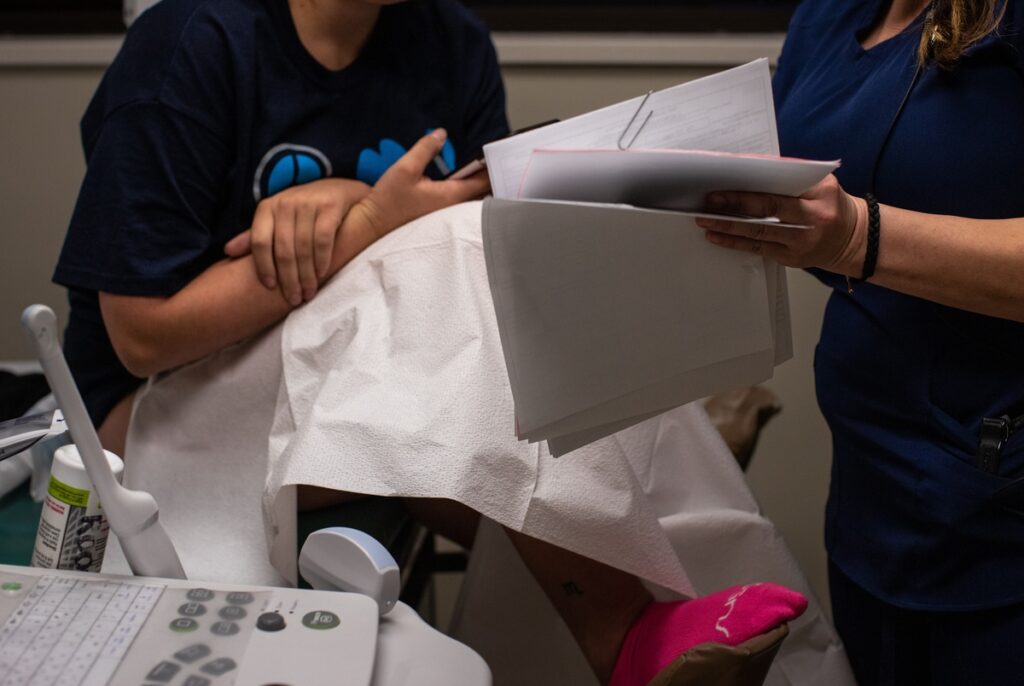
Senate Bill 31 supporters say it would clarify when doctors should intervene to save a pregnant woman’s life, but critics say its vagueness and a measure to resurrect pre-Roe laws hamper it.
AG Bondi launches investigation into DEI admissions policies at Stanford, University of California schools

Attorney General Pam Bondi directed compliance review investigations Thursday into admissions policies at Stanford University and multiple University of California schools. The investigation, headed by the Department of Justice’s Civil Rights Division, will look into diversity, equity and inclusion (DEI) policies at Stanford; University of California, Berkeley; UCLA; and the University of California, Irvine. After the U.S. Supreme Court’s decision in Students for Fair Admissions Inc. v. President & Fellow of Harvard Coll., colleges and universities are prohibited from using DEI discrimination in admissions. 60 UNIVERSITIES UNDER INVESTIGATION BY TRUMP ADMIN FOR ‘ANTISEMITIC DISCRIMINATION AND HARASSMENT’ The Department of Justice (DOJ) is demanding compliance. “President [Donald] Trump and I are dedicated to ending illegal discrimination and restoring merit-based opportunity across the country,” Bondi said. “Every student in America deserves to be judged solely based on their hard work, intellect and character, not the color of their skin.” For decades, elite colleges and universities “prioritized racial quotas over equality of opportunity,” according to a news release from the DOJ’s public affairs office. COLUMBIA UNIVERSITY PUNISHES STUDENTS WHO TOOK OVER BUILDING DURING ANTI-ISRAEL PROTESTS The DOJ claims the practice divided Americans and discriminated against entire groups of applicants. The Trump administration this week filed an emergency Supreme Court appeal, which, if granted, would allow the slashing of hundreds of millions of dollars in grants from the Education Department. Fox News Digital reported this week that multiple Virginia colleges cut their DEI departments and initiatives, falling in line with Trump’s executive order directives. The prior administration “advanced the ideology behind this illegal practice and did nothing to protect the civil rights of American students,” the DOJ wrote in the release. “The Department of Justice will put an end to a shameful system in which someone’s race matters more than their ability,” said acting Associate Attorney General Chad Mizelle. “Every college and university should know that illegal discrimination in admissions will be investigated and eliminated.” The compliance investigations into these universities “are just the beginning of the department’s work in eradicating illegal DEI and protecting equality under the law,” according to the DOJ. Fox News Digital’s Jeffrey Clark and Charles Creitz contributed to this report.
Trump pushes to ‘restore truth in American History,’ end DEI at Smithsonian
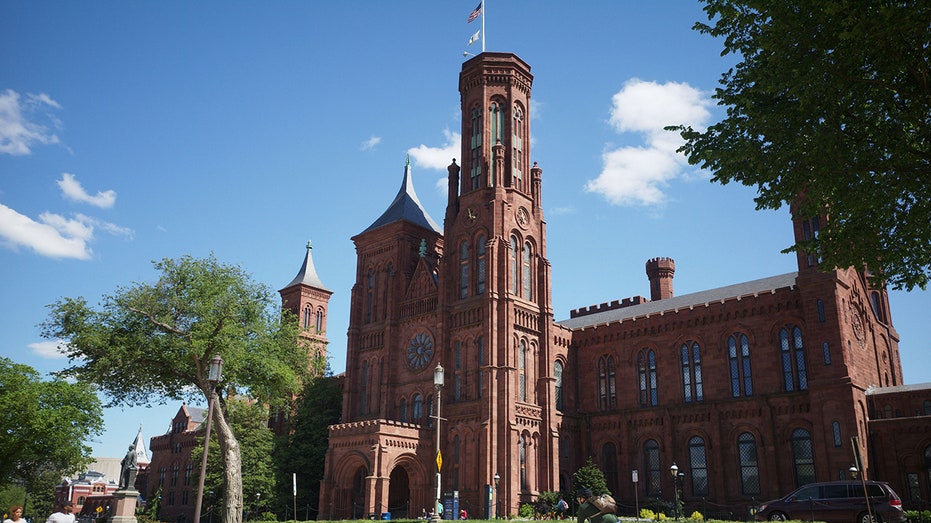
President Donald Trump signed an executive order on Thursday aimed at restoring what he calls “truth and sanity” in American history by reforming the Smithsonian Institution, protecting national monuments, and countering divisive ideology in public institutions. Trump’s order directs Vice President Vance to work on eliminating “improper, divisive, or anti-American ideology” from Smithsonian museums, research centers, as well as the National Zoo. It also pushes Congress to ensure taxpayer dollars do not fund exhibits or programs that “degrade shared American values” or promote ideologies which divide Americans by race. LAWSUIT TRACKER: NEW RESISTANCE BATTLING TRUMP’S SECOND TERM THROUGH ONSLAUGHT OF LAWSUITS TAKING AIM AT EOS “Americans have witnessed a concerted effort to rewrite history and force our nation to adopt a factually baseless ideology aimed at diminishing American achievement,” the order states. The Smithsonian is criticized in the EO for promoting narratives that claim American and Western values are harmful. Trump specifically calls out exhibits that suggest sculpture has been used to “promote scientific racism” and that the United States has maintained power through racial systems. The order also takes issue with the National Museum of African American History and Culture, which previously suggested that “hard work,” “individualism,” and “the nuclear family” are aspects of “White culture.” Additionally, the EO declares that the Smithsonian “celebrate women’s achievements in the American Women’s History Museum and do not recognize men as women.” SUSIE WILES SAYS TRUMP A ‘DIFFERENT PERSON’ IN SECOND TERM AFTER ‘LAWFARE,’ ASSASSINATION ATTEMPT The Executive Order also directs the Secretary of the Interior to restore national parks, monuments, and statues that have been “improperly removed or changed” in recent years to fit what it calls a false revision of history. Under the Executive Order, agencies must complete restorations and improvements to Independence Hall before our nation’s 250th anniversary in 2026. The order also revives Trump’s effort to protect historical monuments from vandalism and establish a National Garden of American Heroes, a project he first proposed on Independence Day in 2020 to honor key figures in American history. “This administration is committed to ensuring that American history is celebrated accurately, fairly, and with pride,” Trump’s order concludes. CLICK HERE TO GET THE FOX NEWS APP The Smithsonian did not immediately respond to Fox News Digital’s request for comment.
Deep red state makes major announcement about income tax: ‘We plant our flag’
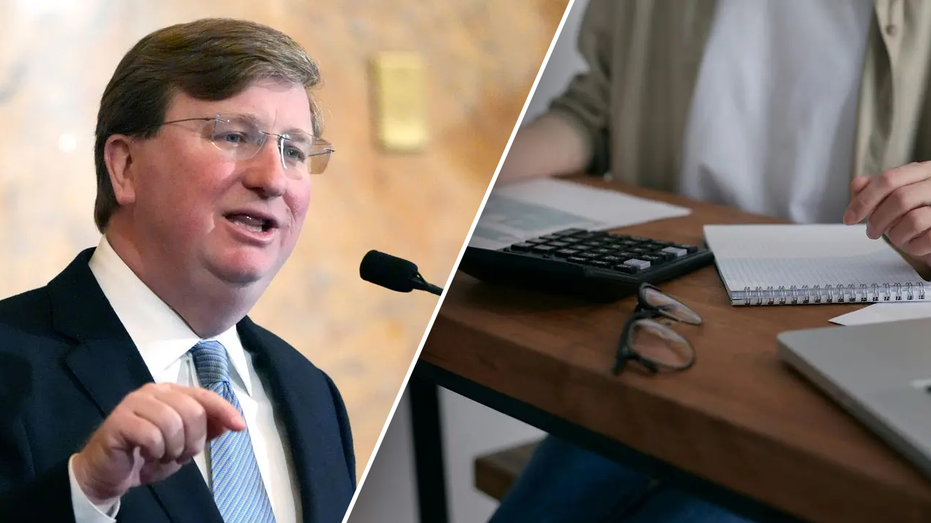
FIRST ON FOX: Mississippi taxpayers will get significant relief with the incremental elimination of the state’s income tax. Republican Gov. Tate Reeves is signing legislation into law Thursday evening that will lower that tax from 4.7% to nothing over the next few years, including getting it down to 3% by 2030, then eventually down to zero. House Bill 1, the “Build Up Mississippi Act,” also slashes the grocery tax to 5% from 7%. REPUBLICAN GOVERNOR SAYS DOGE IS RESTORING OPTIMISM IN FISCAL RESPONSIBILITY “I am proud to sign into law a complete elimination of the individual income tax in the state of Mississippi,” Reeves said in a statement. “Let me say that again: Mississippi will no longer tax the work, the earnings or the ambition of its people. The legislation I’m signing today puts us in a rare class of elite, competitive states. There are only a handful of states in the country that do not tax income. Today, Mississippi joins their ranks, and, in doing so, we plant our flag.” Proponents of the legislation believe it will help boost economic development in the state. Only nine states do not charge an individual income tax: Tennessee, Florida, South Dakota, New Hampshire, Florida, Nevada, Wyoming, Alaska and Washington. ICE ARRESTS 16 ILLEGAL MIGRANTS CAUGHT FLEEING OUT BACK OF MISSISSIPPI BUSINESS DURING RAID “This is more than a policy victory. This is a transformation. And it’s a transformation that I have believed in, fought for and worked toward for many years,” the governor stated. “Generations from now, when our kids are raising families of their own in a stronger, more prosperous Mississippi, they will look back on this moment and say, ‘This is when we took our shot.’ To the people of Mississippi, you are the real winners today.” MISSISSIPPI CITY DROPS LIBEL LAWSUIT AGAINST LOCAL PAPER FORCED TO REMOVE EDITORIAL CRITICAL OF OFFICIALS The state legislature had disagreements on how to best approach tax policy, and a typo considered a happy accident by proponents paved the way for a faster schedule on how soon the cuts can be made, according to the Clarion Ledger. The outlet reported that some Democrats are opposed to the legislation, citing potential concerns about its effect on the public sector. The new policy comes as major tax changes are being proposed at the federal level. The Tax Cuts and Jobs Act of 2017 expires this year, and President Donald Trump has pledged to extend it. He is also hoping to make good on a promise to scrap the federal income tax on tipped wages and overtime pay.
